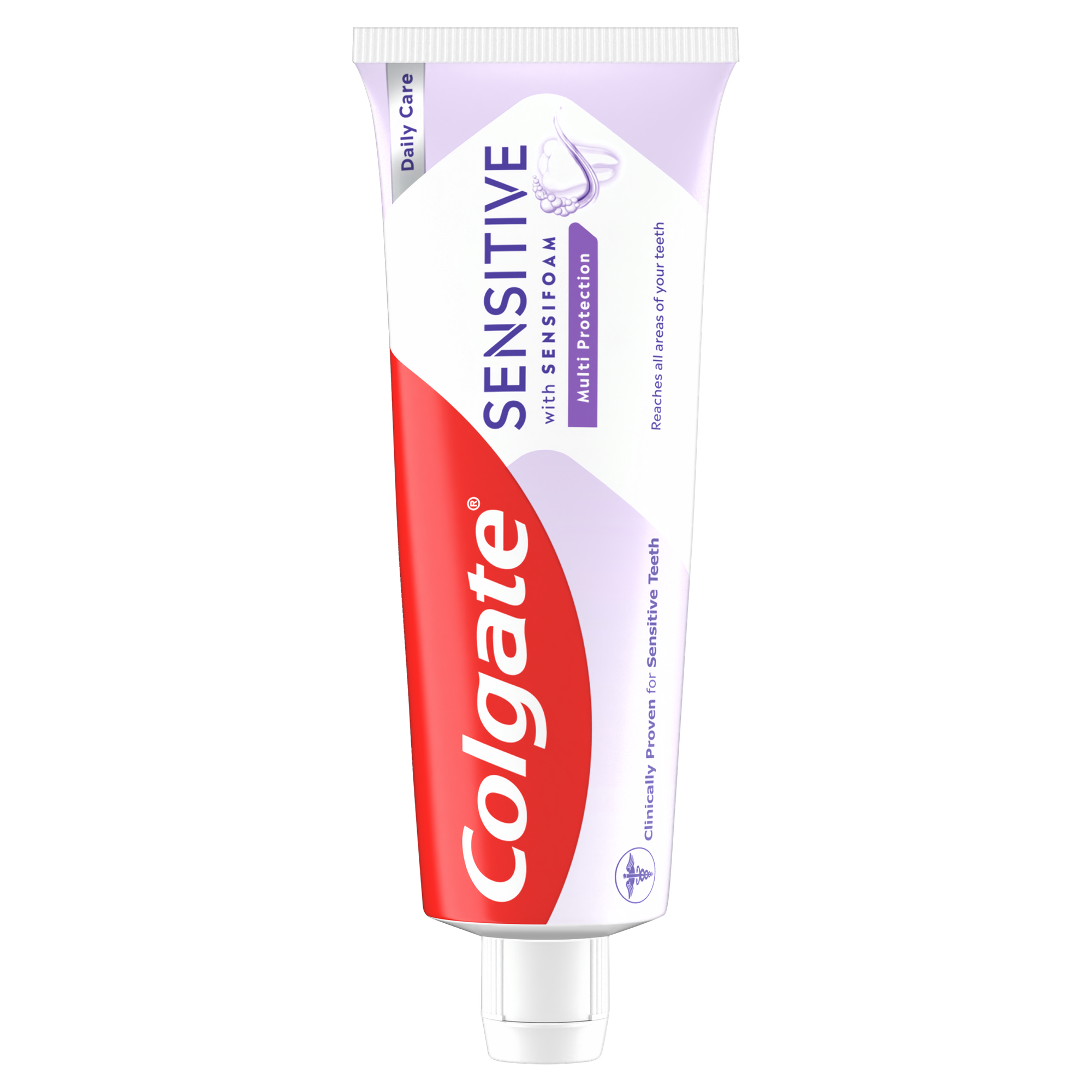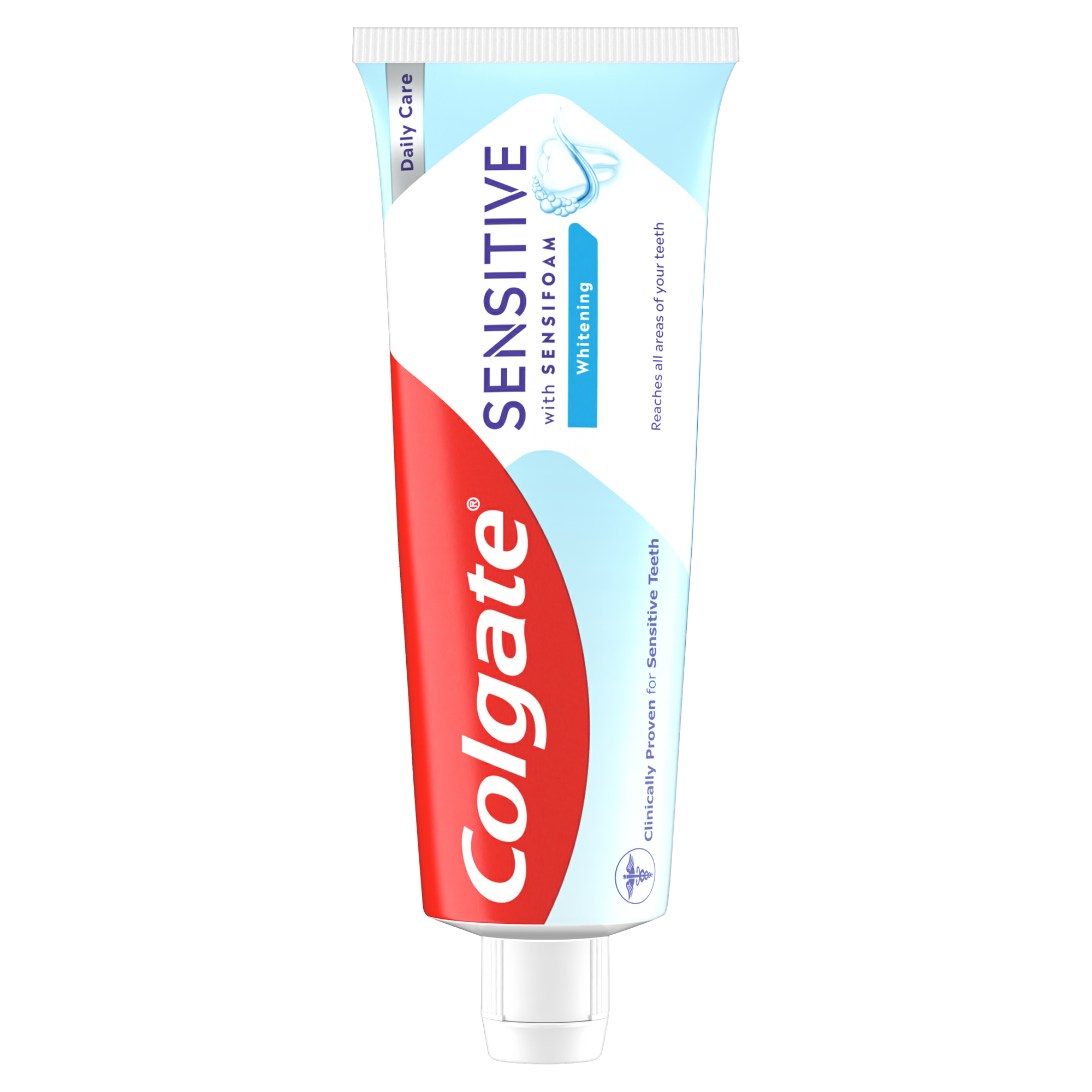What Is Tooth Sensitivity?
Tooth sensitivity has to do with the wearing down of the protective layers of your teeth. The part of the teeth above your gumline, the crown, is covered with a layer of protective enamel. The roots below your gumline are protected with a material called cementum. Underneath the enamel and cementum is dentine, which contains microscopic canals called tubules. When enamel or cementum wears away or becomes damaged, it exposes the dentine. When your gums recede and expose the dentine, the fluid inside the tubules is affected by heat and cold, causing the nerves in the tooth to experience sensitivity and pain.
What Causes Tooth Sensitivity?
Various things can cause tooth sensitivity. Here are some of the most common sensitive teeth causes:
- Worn tooth enamel from using a hard toothbrush and brushing aggressively.
- Tooth erosion due to highly acidic foods and beverages.
- Tooth decay, worn, leaky fillings and broken teeth that expose the dentine of your tooth.
- Gum recession that leaves your root surface exposed.
- Grinding your teeth at night.
- Post dental treatment sensitivity is common but temporary, especially with crowns, fillings and teeth whitening.
Sensitive Teeth and Age
Sensitive teeth can occur at any age. However, research reported in Clinical Oral Investigations suggests peak reports of dentine hypersensitivity occur in patients between 30 to 40 years of age, with sensitive teeth slightly more common in women. Although the exact reason for this is unknown, it may be related to the fact that the physical structure of the tooth changes with age. However, older people are more likely to have receding gums, one of the most common sensitive teeth causes. Wear and tear of the tooth enamel is another common issue that occurs over time.
How Do I Treat Tooth Sensitivity?
First and foremost, tell your dentist. Sensitive teeth can usually be treated successfully. Your dentist may prescribe a brush-on fluoride gel or a fluoride rinse. You can also try low-abrasion toothpastes with formulations made especially for sensitive teeth. Ask your dentist which sensitive toothpaste is right for you. Be gentle when brushing your teeth, or you can cause your tooth enamel to wear away, leaving you with sensitivity. Overzealous brushing, the clasp of a partial denture and braces can also lead to enamel abrasion (loss of tooth surface).
In-Practice Treatment
More complex dental problems can cause and be linked to extremely sensitive teeth, so it's important to see a dentist and have the issue treated directly. The solution may involve a crown, inlay or bonding, depending on the severity of the problem. If you have gum disease that has progressed to a chronic or advanced stage, you'll need to treat this as well. Your dentist can help make a treatment plan. If you’ve lost gum tissue from the root, your dentist may recommend a surgical gum graft to cover the roots so they're protected again. If you have persistent or severe sensitivity, your dentist will take an x-ray to determine if a root canal could be the right solution. According to Bupa, this consists of cleaning the pulp of the tooth, which contains the nerves.
At-Home Treatment
If your tooth sensitivity is less severe, you can treat it with a few simple at-home tactics. You might be able to find some relief from a sensitive toothpaste that helps to remineralise your tooth enamel and protect the tooth surface.
The best treatment for tooth sensitivity is prevention. Once your tooth enamel is worn down, you can't get it back. Proper brushing, flossing techniques and professional cleaning can help prevent sensitive teeth. It will promote healthy teeth and gums regardless of how sensitive your teeth are. Try using a soft-bristled toothbrush and a sensitive toothpaste to help protect your enamel and exposed dentine. At your next appointment, talk to your dentist if you are experiencing tooth sensitivity. He or she can provide the correct diagnosis and recommend treatment options to get your smile back on track.
ORAL HEALTH QUIZ
What's behind your smile?
Take our Oral Health assessment to get the most from your oral care routine
ORAL HEALTH QUIZ
What's behind your smile?
Take our Oral Health assessment to get the most from your oral care routine













